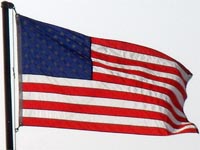End in sight for US after six years in Iraq
 Washington - Six years into the war in Iraq a weary American public finally has an end to the US role in sight, but that end will take a couple more years and require more sacrifices by US soldiers.
Washington - Six years into the war in Iraq a weary American public finally has an end to the US role in sight, but that end will take a couple more years and require more sacrifices by US soldiers.
Beginning with pre-dawn bombing on March 20, 2003, over Baghdad, the war was launched with the stated goal of ousting Saddam Hussein's regime and wiping out his weapons of mass destruction, which proved nonexistent. The mission evolved into stabilizing Iraq under a democratic government.
President Barack Obama has initiated sharp reductions in the US military presence, a move greatly aided by the progress made in the last two years under George W Bush, whose legacy is largely be shaped by his unpopular decision to invade.
While most Americans still believe invading Iraq was a mistake - 53 per cent according to a recent Gallup poll - that number has declined from previous highs as violence continues to drop, with fewer US soldiers come home in flag-draped caskets and the appearance of an emerging, viable Iraqi democracy.
Obama met a key campaign promise by announcing last month that most US combat troops will leave by the end of August 2010, taking the force from its current 140,000 troops to about 35,000 to 50,000. All US troops will have to be out by the end of 2011 under an agreement that the Iraqis forged last year with Bush, before he left office.
The Pentagon's tally of US fatalities in Iraq was listed this week at 4,260, but the rate of combat deaths has reached its lowest level since the war began. According to USA Today, 15 US soldiers were killed in hostile action in January and February, compared to 60 for the same period last year and 149 dead in the first two months of 2007.
The drop in combat fatalities has shadowed the falloff in violence throughout the country. In February, there were 340 insurgent attacks using improvised bombs, the fewest since October 2004, USA Today said.
All incidents of attacks against coalition troops, including gunfire, mortars and roadside bombs, have fallen by 90 per cent since early 2007, when Bush announced a massive troop buildup in Iraq that became known as the "surge."
Despite the progress, Obama has cautioned that bloodshed continues and that Iraq still faces daunting hurdles. Among the biggest challenge is preventing a re-eruption of the ethnic and sectarian strife that brought the country to the brink of full-blown civil war in 2005-06.
"Let there be no doubt: Iraq is not yet secure, and there will be difficult days ahead," Obama, whose presidency so far has been dominated by the economic crisis, said last month. "Violence will continue to be a part of life in Iraq."
As the US role in Iraq winds down, Obama plans to step up the effort in Afghanistan, where the security environment in the last two years has deteriorated even as Iraq has stabilize. Thousands of additional US troops are on the way this year to Afghanistan, and the public view of the conflict there has eroded.
The Gallup poll taken last week showed Americans are increasingly sceptical of the mission in Afghanistan. Only 38 per cent believe the mission in Afghanistan is going well, overshadowing the poll's finding that 51 per cent of Americans believe things are going well in Iraq.
Despite the renewed optimism, few Americans could have imagined six years ago that the United States would still be in Iraq as the decade closed. Not even former defence secretary Donald Rumsfeld, the architect of the Iraq war, who predicted a short stay just months before the invasion.
"I can't tell you if the use of force in Iraq today will last five days, five weeks or five months, but it won't last any longer than that," Rumsfeld said in November 2002. (dpa)